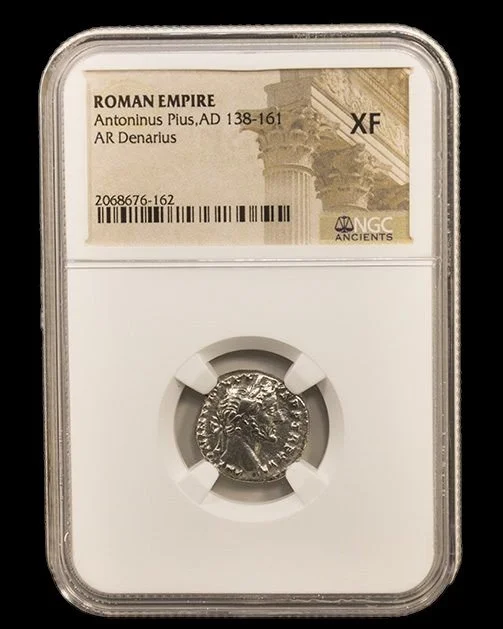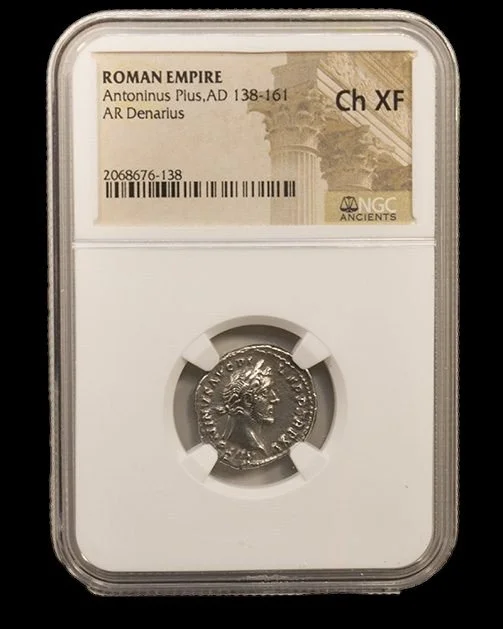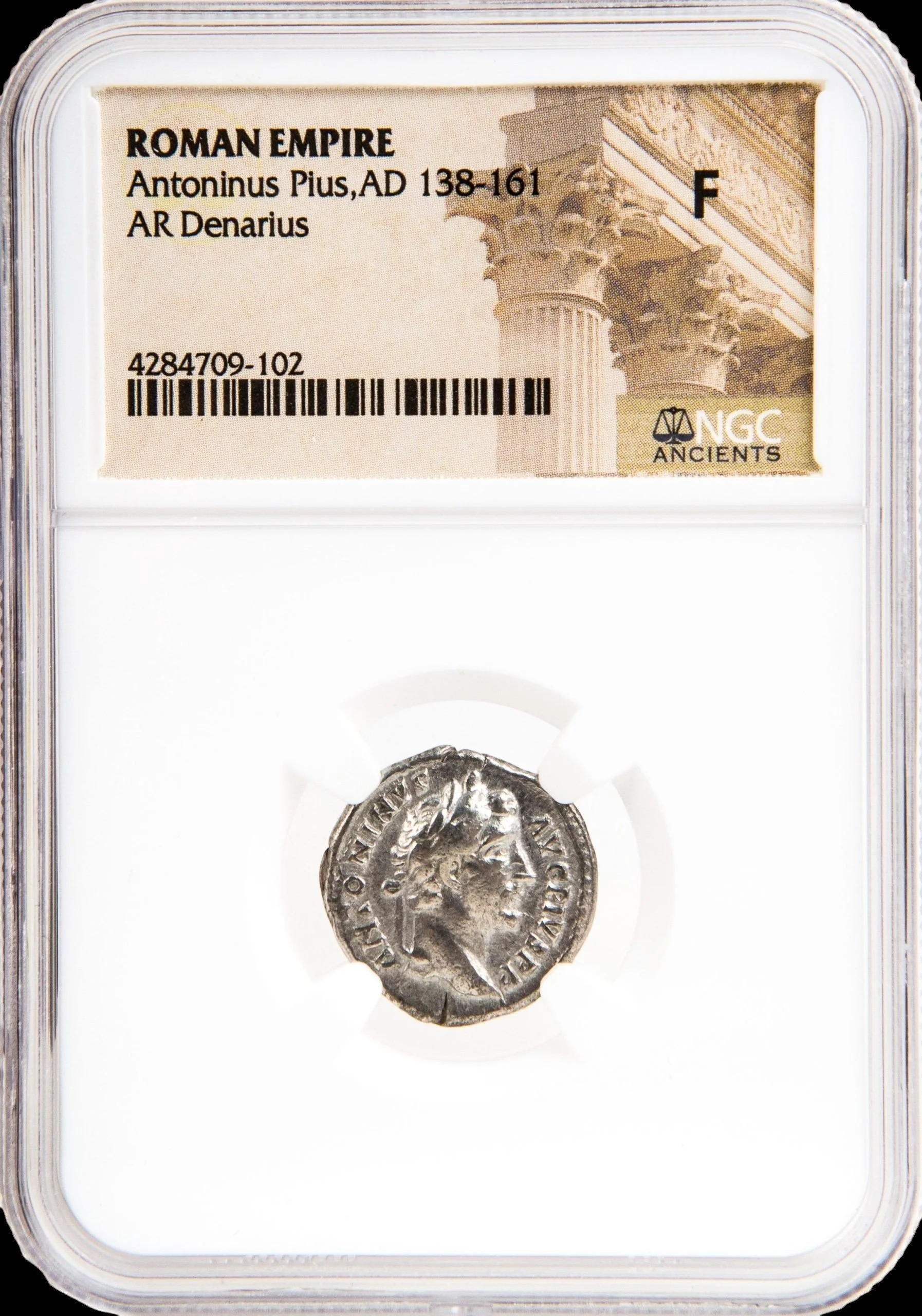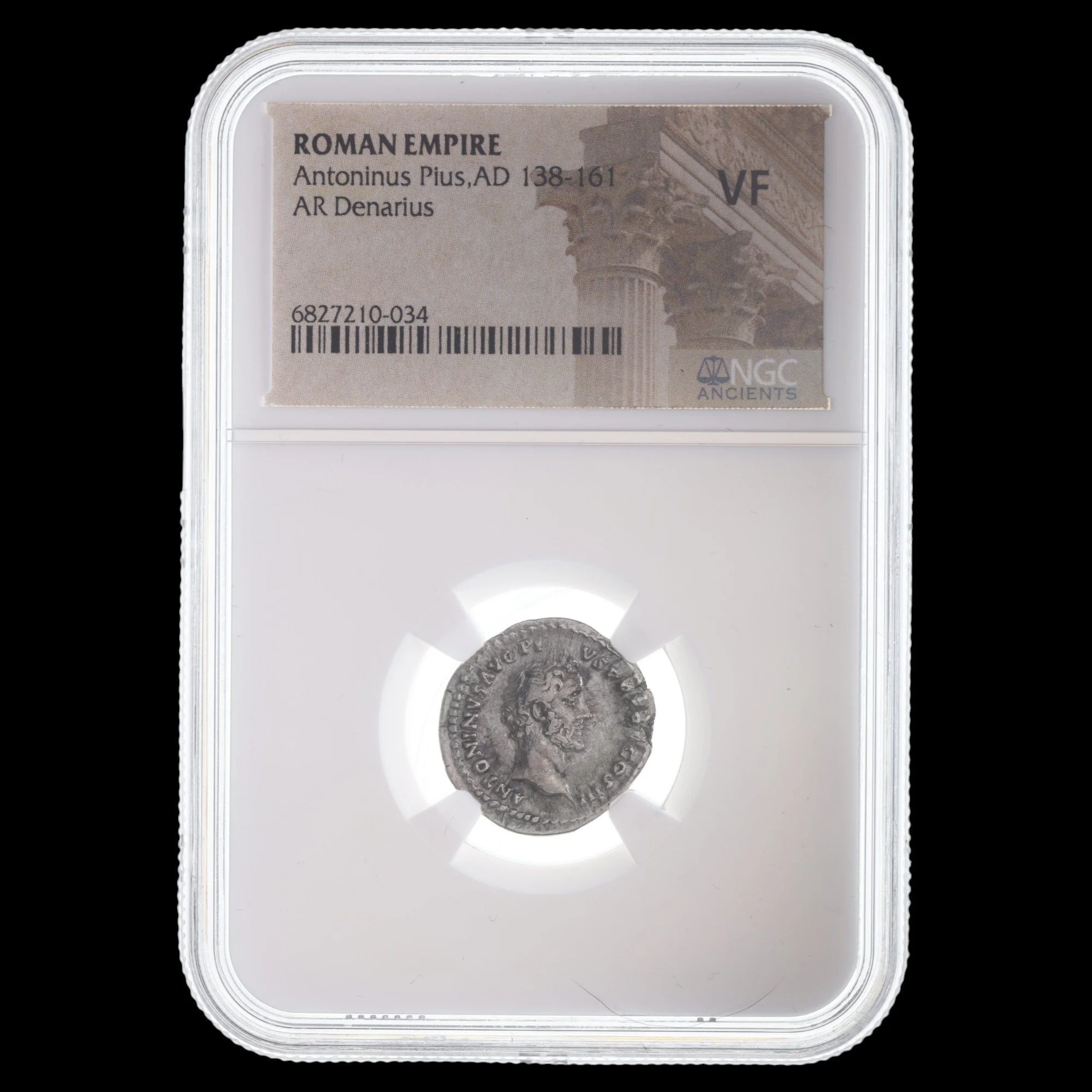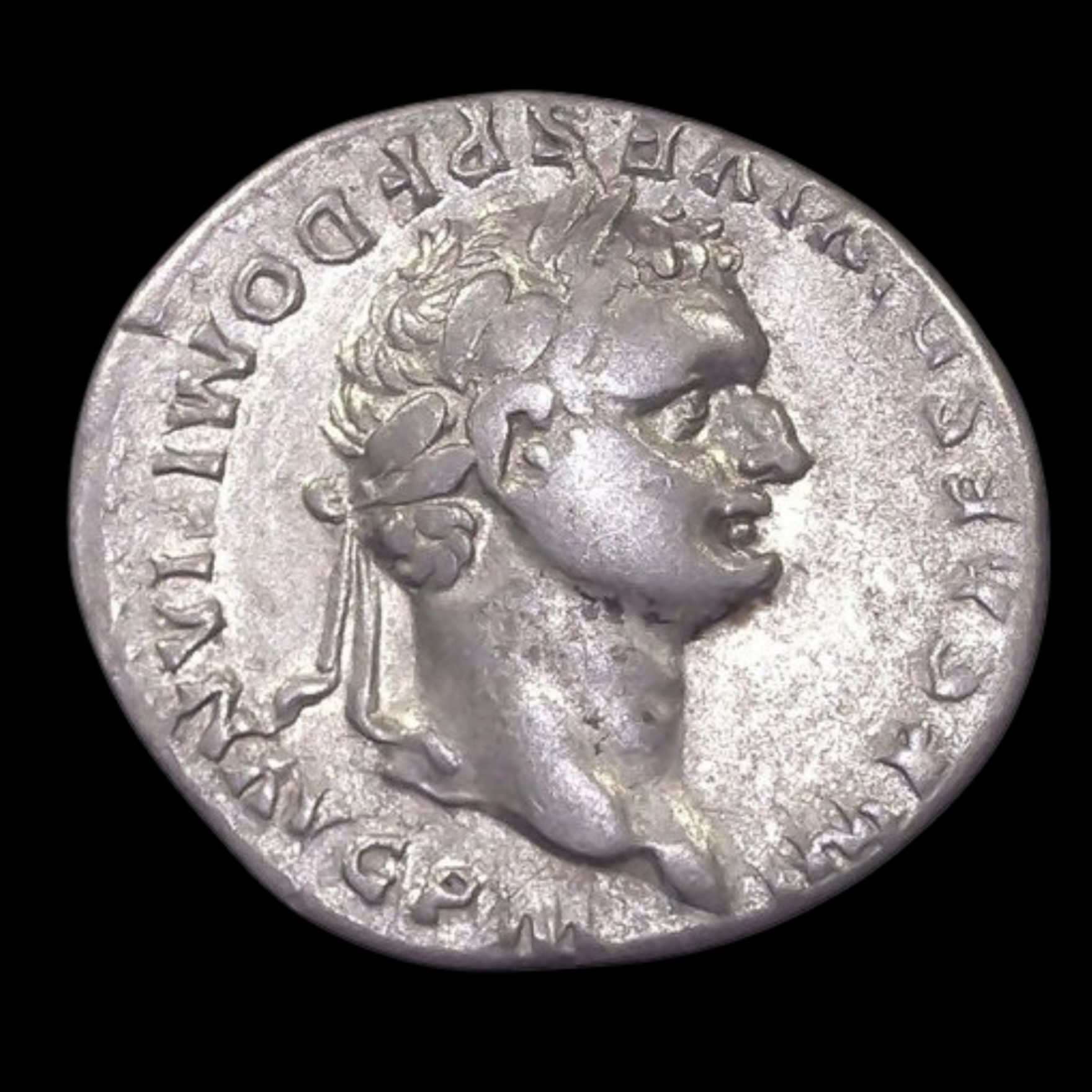 Image 1 of 2
Image 1 of 2

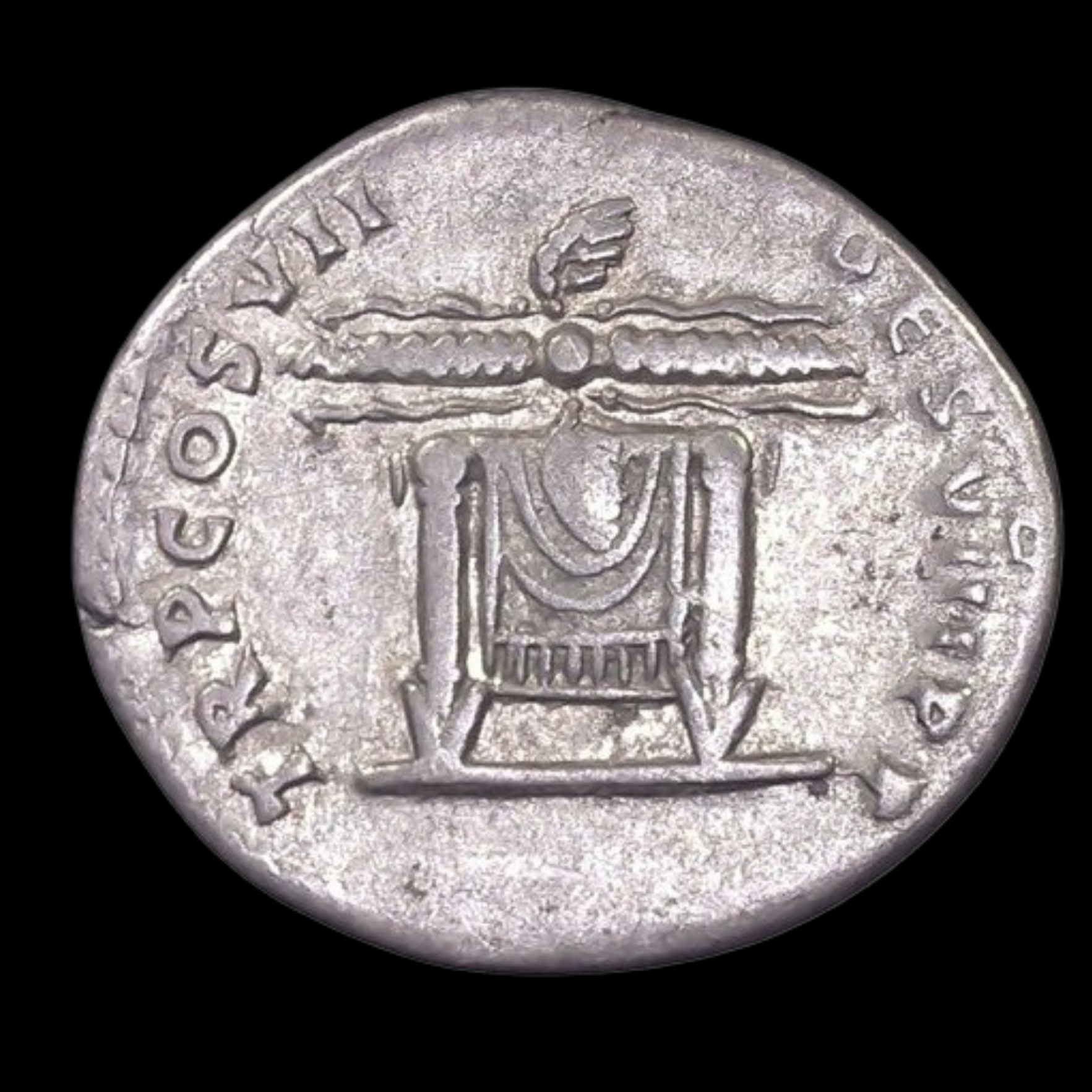 Image 2 of 2
Image 2 of 2



Roman Silver Denarius of Domitian (about 1,944 years ago)
This silver coin is a denarius minted in Rome during the first year of Emperor Domitian's sole reign in 81 CE. As one of the earliest coins issued by Domitian after succeeding his brother Titus, this denarius represents the beginning of the last Flavian emperor's 15-year rule over the Roman Empire.
Coin Description:
Front side: Head of Domitian facing right, wearing a laurel wreath, with the inscription "IMP CAES DIVI VESP F DOMITIAN AVG P" (Emperor Caesar, son of the Divine Vespasian, Domitian Augustus, Pontifex).
Back side: Winged thunderbolt resting on a draped throne, with the inscription "TR P COS VII - DES VIII P P" (Tribunician Power, Consul for the 7th time, Designated for 8th, Father of the Country).
Technical Details:
Silver composition (typically 80-90% pure)
Denomination: Denarius (standard silver coin of the Roman monetary system)
Weight: 3.33 grams
Catalog reference: RIC-72 (R2) - a rare variant in the Roman Imperial Coinage catalog
Provenance: Ex Curtis L. Clay Collection
Minted in Rome in 81 CE
Condition as specified by certification
Historical Significance: This coin was struck during the transition of power following the death of Emperor Titus, marking Domitian's succession as the third and final emperor of the Flavian dynasty. The thunderbolt symbolism on the reverse represents divine power and Jupiter's authority, emphasizing Domitian's connection to Rome's chief deity. The rarity rating (R2) indicates this is an uncommon variant, making it particularly valuable to collectors and historians. Its detailed inscriptions document Domitian's titles and offices during his first year of rule, before his later conflicts with the Senate that would eventually lead to his assassination and attempted erasure from official Roman history.
This silver coin is a denarius minted in Rome during the first year of Emperor Domitian's sole reign in 81 CE. As one of the earliest coins issued by Domitian after succeeding his brother Titus, this denarius represents the beginning of the last Flavian emperor's 15-year rule over the Roman Empire.
Coin Description:
Front side: Head of Domitian facing right, wearing a laurel wreath, with the inscription "IMP CAES DIVI VESP F DOMITIAN AVG P" (Emperor Caesar, son of the Divine Vespasian, Domitian Augustus, Pontifex).
Back side: Winged thunderbolt resting on a draped throne, with the inscription "TR P COS VII - DES VIII P P" (Tribunician Power, Consul for the 7th time, Designated for 8th, Father of the Country).
Technical Details:
Silver composition (typically 80-90% pure)
Denomination: Denarius (standard silver coin of the Roman monetary system)
Weight: 3.33 grams
Catalog reference: RIC-72 (R2) - a rare variant in the Roman Imperial Coinage catalog
Provenance: Ex Curtis L. Clay Collection
Minted in Rome in 81 CE
Condition as specified by certification
Historical Significance: This coin was struck during the transition of power following the death of Emperor Titus, marking Domitian's succession as the third and final emperor of the Flavian dynasty. The thunderbolt symbolism on the reverse represents divine power and Jupiter's authority, emphasizing Domitian's connection to Rome's chief deity. The rarity rating (R2) indicates this is an uncommon variant, making it particularly valuable to collectors and historians. Its detailed inscriptions document Domitian's titles and offices during his first year of rule, before his later conflicts with the Senate that would eventually lead to his assassination and attempted erasure from official Roman history.
















